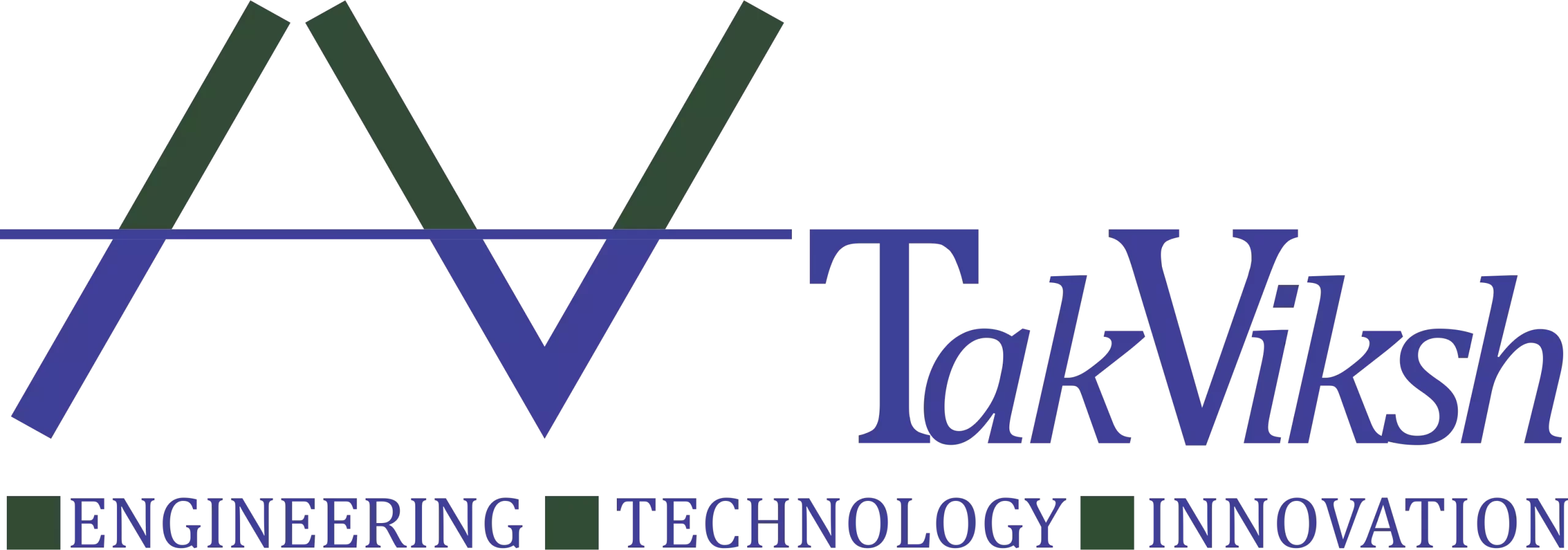Basic Engineering: The Foundation of Successful Projects.
In the world of industrial and infrastructure projects, the term ‘basic engineering’ holds paramount importance. This phase constitutes the bedrock of what the rest of a project is going to be made from. The entire concept-from the origination of an idea to the final implementation-stems out of basic engineering within project development.
Consultants like TakViksh Engineering are at the forefront of delivering high-quality engineering consultancy services in industrial hubs like India, a city known for its rich history of engineering excellence. These engineers’ contribution is very much necessary in checking whether basic engineering for the undertaking project in the field of oil and gas, chemical plants, or infrastructure is being set on the right path.
In this blog, we’ll delve into the essential role that basic engineering in project management plays in the success of large-scale projects and how engineering consultancy services, particularly those offered in India, shape this process.
What is Basic Engineering?
Basic engineering provides the fundamental step for any engineering project. It sets the direction for the remaining stages that follow and covers the initial planning, design, and conceptual stages required to bring the project alive. Without solid fundamental/basic engineering in project development, such a project might face substantial delays and cost overruns, along with having serious technical issues that might render it ineffective.
At its very core, basic engineering translates the requirements of a project into a preliminary design, defining the scope, layout, and key specifications of the project. It forms the basis of creating a framework that will be used as a blueprint for detailed engineering, procurement, and construction phases.
Key Aspects of Basic Engineering
- Feasibility Studies: Determining whether the project is technically feasible, economically viable, and environmentally acceptable.
- Preliminary Design: It is the development of preliminary design concepts that include process flow diagrams (PFDs), preliminary layout plans, and schematics.
- Site Surveys: Detailed surveys are conducted to evaluate the project’s environmental and technical requirements.
- Cost Estimates: Preliminary cost estimates for the project are made on the basis of initial design concepts and resource requirements.
In essence, basic engineering in project management has a crucial role when forming the basis of establishing the scope, direction, and preliminary design details of what should be a successful project.
Key Deliverables in Basic Engineering Services
Basic engineering is not just about creating blueprints; it’s about preparing a comprehensive package of deliverables that will guide the subsequent stages of a project. Without this stage, it would be difficult to ensure smooth execution and proper alignment between the contractors, clients, and regulatory bodies.
Following are some of the key deliverables that are produced during the basic engineering phase:
-
Process Flow Diagrams (PFDs)
One of the most important documents developed during the basic engineering phase is the Process Flow Diagram, or PFD. This diagram provides a high-level view of the process, showing the flow of materials, energy, and information through the system. It describes the major equipment and components that will be utilized in the process.
PFDs are useful in making stakeholders understand the general process, pointing out possible inefficiencies, and making sure that the system is designed to meet performance objectives.
-
Preliminary Layout Plans
Preliminary layout plans define the arrangement of equipment, structures, and systems on the project site. These plans consider space requirements, safety protocols, and accessibility. The layout serves as the visual representation of how the project will be structured.
These schematics guide detailed engineering and construction teams toward a coherent design approach that maximizes operational efficiency while also meeting regulatory standards.
-
Preliminary Equipment List
At basic engineering, a preliminary list of equipment is generated. This is a preliminary list of key pieces of equipment needed for the project, including pumps, compressors, vessels, and reactors. This list aids the project manager in estimating the scope of procurement and sets timelines for material acquisition.
-
Utility and Infrastructure Plans
A good utility plan is one of the basic engineering deliverables. It specifies the requirements for electricity, water, gas, and other utilities to support the facility’s operation. It also includes details on the infrastructure to be developed, such as access roads, drainage systems, and waste disposal.
-
Preliminary Cost Estimate
Basic engineering provides a preliminary estimate of the project cost based on the early design and layout. This helps stakeholders assess the financial feasibility of the project and identify areas where costs can be saved.
-
Compliance and Regulatory Documents
Basic engineering ensures that all design plans abide by local and international regulations. Compliance documents ensure that the project meets safety standards, environmental regulations, and local building codes. It is an essential aspect of any industrial project and integral to the overall success of the project.
Benefits of Partnering with Consultants from India
India, an engineering hub with a rich legacy, has established itself as a prime location for businesses looking for engineering consultancy services. The city is home to a wealth of experienced professionals who specialize in various industries, from oil and gas to infrastructure development. Collaborating with Indian-based consultants provides numerous advantages for projects of any scale.
-
Industry Expertise and Local Knowledge
India is an established hub for consultancy engineering firms with rich expertise in industrial project development. Local conditions, industry standards, and regulatory requirements are well known to consultants in India, such as TakViksh Engineering. The design of the project would ensure both international and regional requirements.
-
Cost Effectiveness
With its highly skilled workforce and access to cutting-edge technologies, India offers a cost-effective solution for basic engineering in project execution. By partnering with Indian-based consultants, businesses can benefit from competitive pricing without compromising quality.
-
Advanced Technological Capabilities
The engineering consultancies in India take the lead in adopting such advanced technologies as Building Information Modeling (BIM), 3D modeling, and automation tools. This helps the consultants to provide solutions that are precise, efficient, and scalable, and ensures the basic engineering phase is at its best optimized.
-
Seamless Collaboration and Communication
The community of engineers in India is highly collaborative. Consultants here can easily handle multiple stakeholders and projects with many stakeholders. The communication of the consultants of India is very clear and effective. Therefore, they make sure that all project requirements are met at each stage of the project.
-
Complete Support for Multi Stakeholder Projects
Indian-based consultants, who have a wide range of services from basic engineering in project planning to construction and project management. This integrated approach ensures that every aspect of the project is thoroughly planned and executed, minimizing the risk of costly delays or oversights.
Expertise in Basic Engineering by TakViksh Engineering
TakViksh Engineering is, at the heart of the engineering excellence of India, one of the biggest providers of engineering consultancy services. TakViksh Engineering offers all kinds of services that range from initial design and planning to full-scale construction support. It is especially focused on basic engineering during project execution.
The most complicated projects, regardless of sectors such as oil and gas, petrochemicals, chemical plants, or power generation, can be executed with TakViksh’s team of experts. Every project, by the base of basic engineering proficiency, gets a solid foundation for easy movement into the successive phases.
Key Strengths of TakViksh Engineering
- Customized Solutions: TakViksh delivers customized solutions which are especially tailored to fit the requirements of each individual project so that it works at optimal levels and within maximum efficiency.
- Extensive Industry Experience: Having worked across various industries, TakViksh has gained broad knowledge of diverse industry requirements and challenges.
- Excellent Project Management: The consultancy’s excellent project management ensures that projects get delivered on time and within budget.
- Sustainable practices: TakViksh integrates sustainability into its basic engineering processes; it encourages green building projects and also supports energy-efficient designs.
Conclusion
In industrial and infrastructure projects, the concept of basic engineering is said to be the cornerstone of success. A well-executed basic engineering phase lays the foundation and provides a pathway to efficient procurement, construction, and successful delivery of a project.
Working with some of the most recognized engineering consultancy firms in India, like TakViksh Engineering, helps the businesses to design the projects in such a manner that is accurate, innovative, and careful. As India is emerging as a rapidly growing hub of engineers, consultants in the city have the capabilities of rendering high-class services by conducting projects flawlessly, at economical costs, and also ensuring compliance with regulatory aspects.
FAQs
What is the difference between basic engineering and detailed engineering?
Basic engineering of a project refers to the preliminary planning and design phase, while detailed engineering is developing the specifications and drawings required for construction.
Why is basic engineering essential for project success?
Basic engineering is the foundation for the whole project as it establishes design parameters, scope, and feasibility, hence reducing the risk of delay and cost overrun in the later phases.
What services does basic engineering offer from an engineering consultant?
The basic engineering service of an engineering consultant would include feasibility studies, preliminary design, site survey, cost estimate, and compliance documentation.
What is the benefit that the project can derive if consultants based in India work for my project?
Collaborating with India-based consultants will deliver expertise, cost-effectiveness, technology sophistication, and a team working approach for efficient delivery of the project.
What sectors would benefit from basic engineering from TakViksh Engineering?
TakViksh Engineering offers consultancy services to the industries of oil and gas, petrochemicals, power generation, and infrastructure development to ensure that all projects are executed with high quality.







Recent Comments